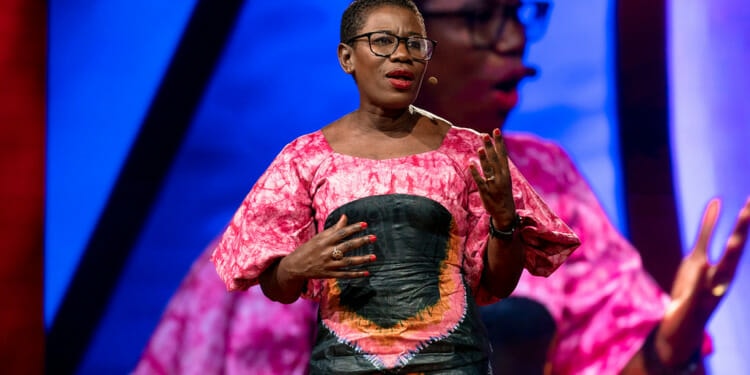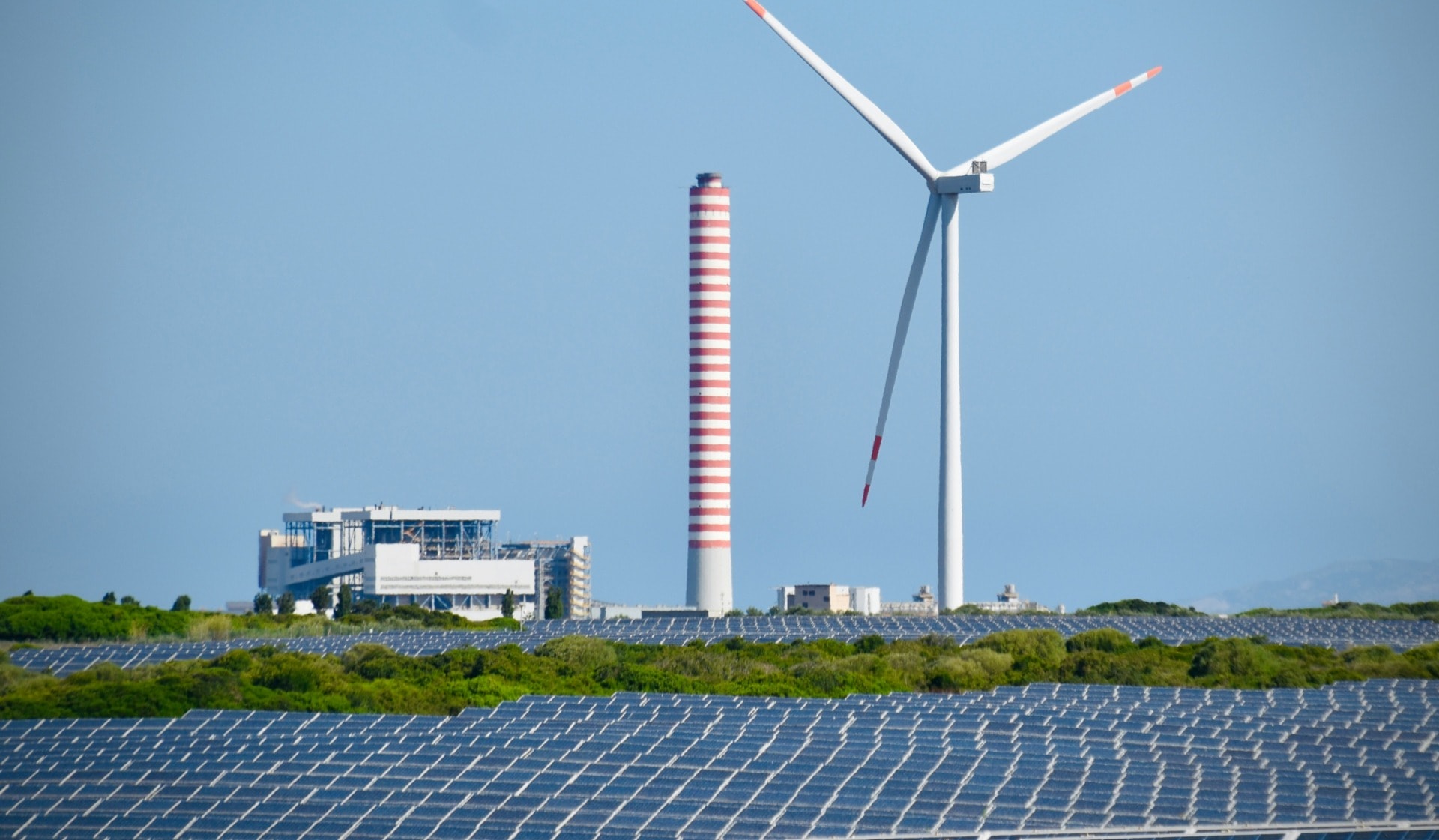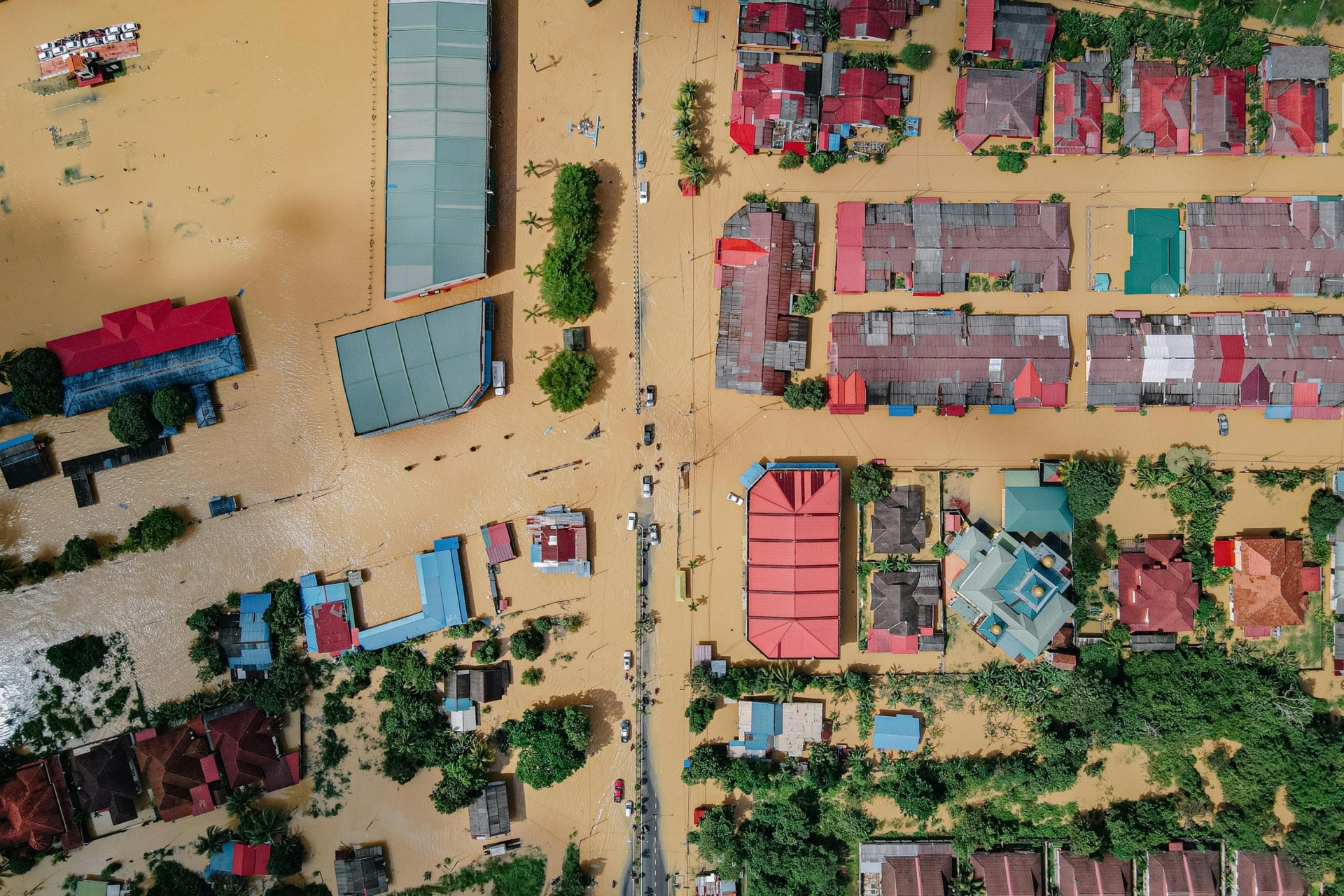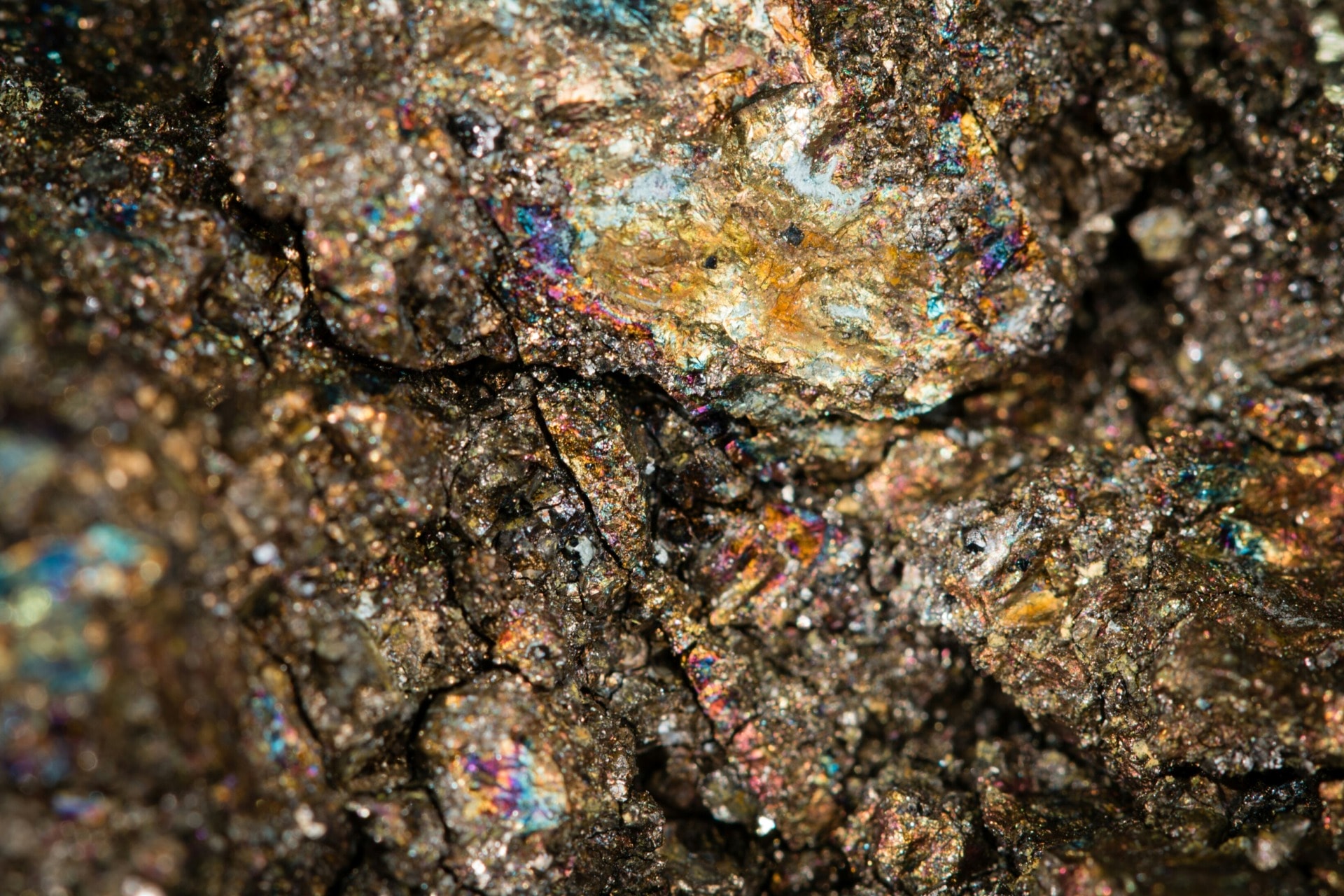As extreme heat claims more and more lives, Freetown, Sierra Leone, has appointed Africa’s first Chief Heat Officer, Eugenia Kargbo. Kargbo is the world’s third such officer – the other two are in Athens and Miami – and will continue Freetown’s proactive work in climate resilience. She will institute changes to protect the city’s most vulnerable citizens, raise awareness and gather data for long-term initiatives in a country hit hard by extreme weather.
Over a 1,000 people were killed by a landslide on the deforested hills of Freetown, Sierra Leone’s capital city, in 2017. In the wake of the disaster, it was abundantly clear that the climate crisis had already taken grip of the nation and climate resilience was needed immediately. Freetown’s Mayor, Yvonne Aki-Sawyerr, has led that charge.
I was sworn in as Mayor of Freetown on 11/5/2018. Three years on, I am grateful for what we have achieved together, conscious of the challenges that we face and confident that collectively we can overcome these challenges in order to #TransformFreetown https://t.co/6z8S5j8uqG
— Yvonne Aki-Sawyerr OBE (@yakisawyerr) May 11, 2021
For decades, this West African nation has been devastated by droughts, floods and landslides. Especially as the climate crisis intensifies, rising temperatures threaten to make the situation even worse. Although temperatures are increasing across the world, they are rising faster in Africa than any other place in the world.
Extreme heat is compounding already existing issues in Sierra Leone, making them far worse. In the dry season, heat causes drought, crop failures, water shortages and wildfires, whilst in the wet season, it exacerbates water-born diseases, such as malaria. The effects of extreme heat are amplified within cities, which often experience an urban heat island effect.
The new Chief Heat Officer will be charged with responding to this effect and establishing policies to protect Freetown’s most vulnerable citizens. Eugenia Kargbo, a 34-year-old mother of two, is passionate about protecting the city of Freetown from extreme heat as she strives for a stable future for her children. As Kargbo takes on her year-long role as Chief Heat Officer, she hopes to expand her existing projects, such as training unemployed youth to collect waste and transforming former dump sites into community gardens, while gathering much needed heat and housing data.
Heat and housing data in fact are crucial as they will provide a clear idea of what the challenges are. As the effects of climate change have crippled rural livelihoods, Freetown has seen an influx of climate migrants. The growing urban population — a trend seen all across Africa — has led to the increased construction of informal settlements, which now house roughly 35% of the city’s population.
These settlements have driven deforestation in the area, making the ecosystem more fragile and increasing the risk of floods and landslides, like the one in 2017. Besides being at risk of flooding, these settlements also experience higher temperatures than elsewhere whilst residents are often already more vulnerable due to poverty, livelihood opportunities and health.
Yet, Freetown’s Mayor Aki-Sawyerr has quickly acted on climate issues, in particular, by introducing a three year development plan in 2019, the so-called Transform Freetown plan.
The Mayor has worked with citizens to address issues, developing a four cluster plan focusing on “resilience, human development, a healthy city and urban mobility.”
“My hope is that future generations will be able to enjoy the nature and wildlife of Freetown just like I did as a child.”
Yirah is one of many Freetonians implementing natural climate solutions to transform the capital city of Sierra Leone into #FreetownTheTreeTown. pic.twitter.com/32aXpB2KnR
— C40 Cities (@c40cities) July 15, 2021
In 2020, the Mayor introduced the #FreetownTheTreetown plan that led to 300,000 trees being planted since 2020 and 700,000 more to go. Freetown’s new Chief Heat Officer was involved in this initiative and she has also worked with the Mayor to tackle sanitation and foster sustainable employment opportunities.
Climate resilience: The challenge of extreme heat and the strategy to address it
Extreme heat is often referred to as a silent killer as there is a significant lack of knowledge of its danger, both at a local and international level. Public understanding of risks and responses to extreme heat will be critical in preparing cities as temperatures continue to rise.
Also, extreme heat is a growing issue and can lead to a vicious cycle. As rising temperatures ruin rural livelihoods, more migrants will move into cities, which may lead to growing poverty, pollution and heat amplification if the cities are not sustainably organised.
A systemic lack of data on heatwaves in Africa has delayed and damaged preparation and adaptation efforts. Although extreme heat does not capture headlines the way floods and tsunamis do, it is actually one of the deadliest threats resulting from the climate crisis, according to the Atlantic Council.
The Atlantic Council’s Adrienne Arsht-Rockefeller Foundation Resilience Center (Arsht-Rock) aims to secure climate resilience for one billion people by 2030. To do this it has helped appoint Kargbo along with two other chief climate officers, in Athens and in Miami in partnership with Extreme Heat Resilience Alliance‘s (EHRA) City Champions for Heat Action (CCHA) initiative.
“The resilient people of Freetown live and work with heat every day — and we will be forced to adapt to higher temperatures. By joining CCHA and naming a Chief Heat Officer for my city, I seek to build dedicated capacity to protecting vulnerable people and livelihoods from rising temperatures and to help build a culture of preparation and prevention,” said Mayor Yvonne Aki-Sawyerr OBE of Freetown, Sierra Leone.
As part of CCHA, Freetown will receive technical assistance from EHRA and a ready-to-implement roadmap to reduce the risks of heat for vulnerable citizens. Freetown also becomes part of a global network of cities working to address heat risks.
In Freetown, the population is expected to double over the next 10 years largely due to climate migration. This is why it is so important that Chief Heat Officers, like Kargbo, are appointed and action takes place now.
Related Articles: As Cities Grow Across Africa, They Must Plan for Water Security | July Was World’s Hottest Month Since 1879
Through innovative and resilience-focused policies, Freetown’s Chief Heat Officer is expected to be able to increase the city’s heat resilience and help protect lives and livelihoods.
More generally, chief Heat Officers can play a broader role and can be expected to become involved in coordinating planning and response systems, implementing long-term cooling projects and raising awareness about extreme heat risk.
Freetown’s Mayor, Aki-Sawyerr, is set to appear at the Resilience Hub at the United Nations’ COP26 to discuss the Chief Heat Officer appointment and encourage others to follow similar routes. At the time of writing, only three cities have Chief Heat Officers. Yet, as 1.6 billion people in cities are expected to suffer from extreme heat by 2050, it is undeniable that these roles are going to be increasingly necessary.
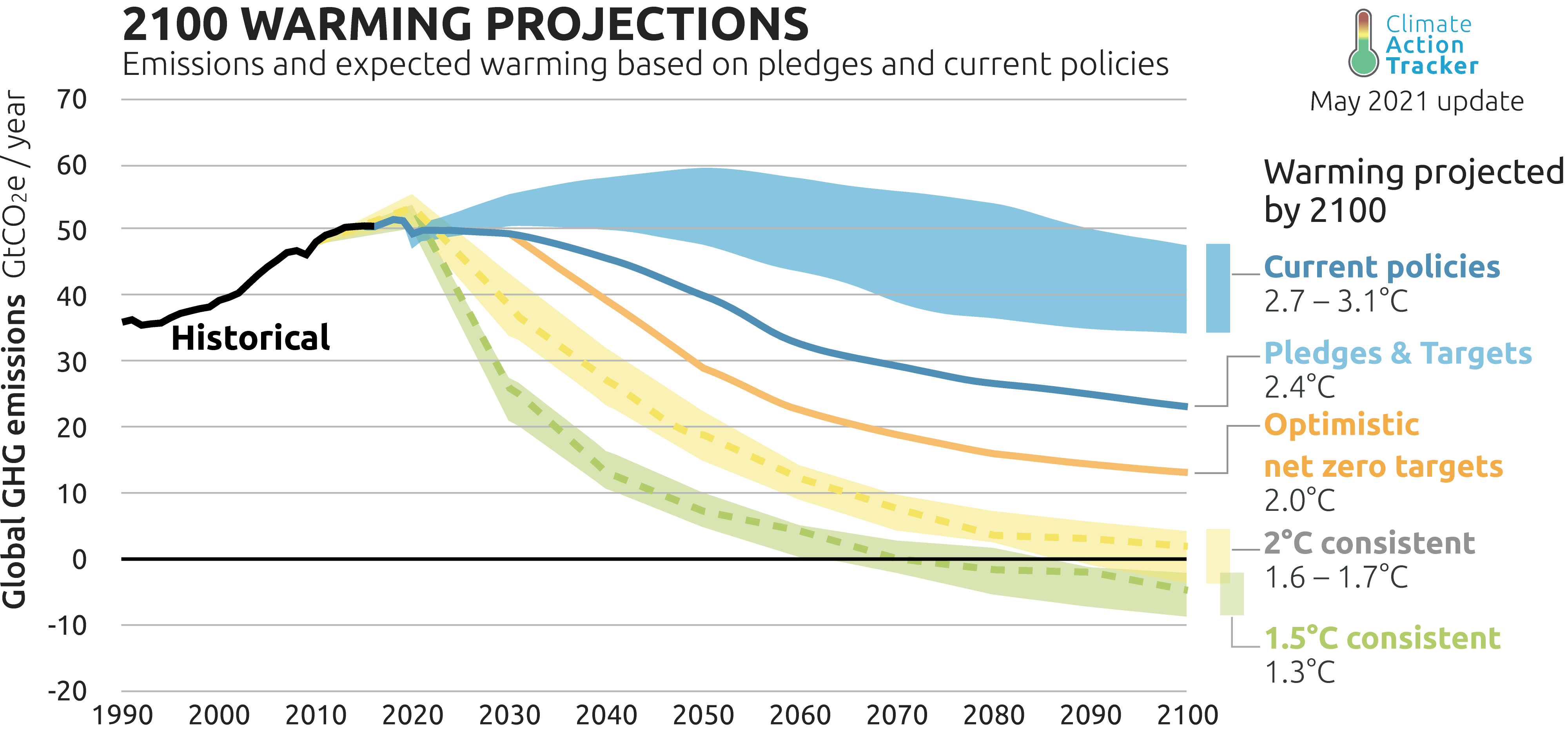
As the above graph shows, current policies place the world in line for a warming of 2.9°Celsius above pre-industrial levels. This warming will lead to heatwaves, rising seas, drought, wildfires, heavier rainfall and flooding. “Climate change is on our doorstep and we are seeing it already impact farmers, food security and people’s health and safety,” Kargbo warned.
“Heat is the biggest threat that the climate crisis offers, and we do not have a handle on it. Every level of government will need a Chief Heat Officer as leaders begin to better understand, quantify, and act to combat this silent killer. Bravo to these inspiring urban climate leaders for stepping out in front,” said Kathy Baughman McLeod, SVP and Director of the Arsht-Rock.
Cities need to start taking action against extreme heat, preparing citizens and infrastructure. Climate action is often focused around reducing emissions, which is partly why issues such as extreme heat have been neglected for so long. However, emission reductions alone cannot save the planet, proactive and innovative climate resilience initiatives must be introduced. Under the guidance of Yvonne Aki-Sawyerr, Freetown has been a pioneer when it comes to climate resilience. As cities around the world heat up, it’s important her leadership is acknowledged and followed.
Editor’s Note: The opinions expressed here by Impakter.com columnists are their own, not those of Impakter.com. — In the Featured Photo: Yvonne Aki-Sawyerr, Mayor of Freetown, speaks at TEDWomen 2019. Featured Photo Credit: TED Conference.


